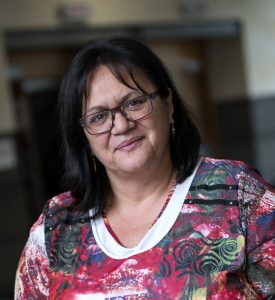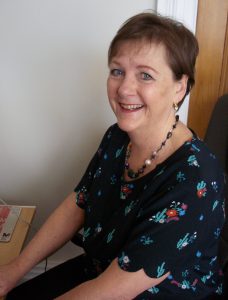Storytelling is a common theme for two Otago Polytechnic nursing lecturers honoured at last night’s Tertiary Teaching Excellence Awards ceremony.
Dr Liz Ditzell and Mereana Rapata-Hanning were both awarded Sustained Excellence Awards at the annual awards night in parliament. Up to 12 awards, worth $20,000 each, are awarded each year to tertiary teachers who have demonstrated commitment to their subject and an ability to engage and excite learners.

Mereana Rapata-Hanning’s approach to learning was influenced by storytelling being a part of her family life and she continued to use storytelling and reflective conversations as one of her teaching tools. She is a principal lecturer at Otago Polytechnic in kawa whakaruruhau/cultural safety, Te Tiriti o Waitangi and Māori health where she has been teaching since 1996 and supporting learners to achieve in a culturally safe environment. “Experienced, realistic, humorous and intelligent teaching of topic,” was one student comment about Rapata-Hanning and another talked about her “passion, enthusiasm and knowledge make learning interesting”.
Telling stories is also part of the teaching philosophy of Dr Liz Ditzell whose teaching career began as a nursing tutor but she then spent 20 years lecturing in management at the neighbouring University of Otago before returning to teaching nursing students in 2010 at Otago Polytechnic, where she is also a principal lecturer. Ditzell had remained passionate about nursing during her time as a management lecturer offering mentoring workshops for Dunedin Hospital nurses and completing her doctoral thesis on nurses’ stress and burnout. She said her personal and professional experience – that included managing an intensive care unit and raising four children – influenced her teaching particularly ‘thinking on her feet’, telling stories, adopting new technologies and striving to make learning relevant and fun.

In 2016, she received an Outstanding Reviewer Award (in the top 10%) for her contribution to nursing education research by the editorial board of Nurse Education Today. A student described Ditzell as a “fantastic teacher” who was “passionate about her job and it showed in her teaching”. Ditzell has also helped produce an Immersive Learning programme that combines lectures and tutorials with LabTutor (an online learning platform) and clinical simulation using high-fidelity manikins. She also ‘klinky boxes’ – a set of small, sealed wooden boxes containing a movable object and a children’s story book in a learning activity that helps teach clinical reasoning skills by engaging student’s curiosity as they work through the steps and clues to reach a consensus about what is in the box.
Rapata-Hanning said one of the philosophies driving her as a teacher and facilitator of learning was giving a voice to the learner. She used the concept of Ako Māori (a reciprocal learning approach) as the basis of a collaborative learning model where all learners could benefit from the wider group’s knowledge base and effort to gain an appreciation of a Māori world view. A colleague said of Rapata-Hanning that “her leadership in the school has ensured the integration and ‘normalistation’ of tikanga while informing outcomes for students.” She has worked collaboratively to develop learning programmes, courses, papers and workshops for the school and wider community on a range of topics including contemporary Māori health and Māori concepts of death, dying, and grieving.
Other roles include holding executive positions in the Māori Women’s Welfare League, being an inaugural member of the National College of Māori Nurses (Te Kaunihera o Nga Neehi Māori) and a Māori board member of the College of Nurses Aotearoa.




















